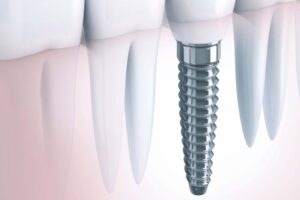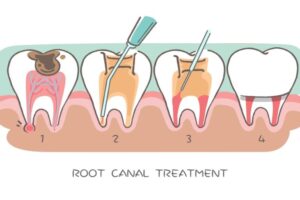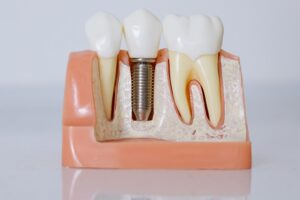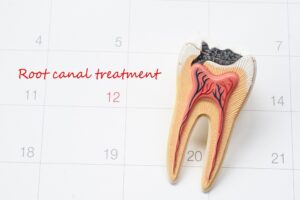As uncanny as it sounds, there is gender inequality even in oral health, courtesy our hormones which are clearly driving us nuts and premediating our desires, mood swings, weight and temperament. Estrogen and Progesterone are the most important hormones responsible for the changes in a women’s body. The hormonal surges/ imbalance is at its peak during the following five stages of our lives: Puberty, monthly period, during use of birth control pills, pregnancy and menopause.
The most common symptom is bleeding gums owing to redness, soreness and swelling of gum tissues. This promotes plaque deposition along the gum margins further complicating the situation. Thankfully, with proper oral hygiene tactics and professional teeth cleaning session, gingivitis is reversible. However, if left unchecked, it can progress to periodontitis which involves the surrounding bone and compromises the overall life of the teeth.
MECHANISM OF ACTION:
 ORAL CONTRACEPTIVE PILLS :- Most birth control pills contain a low dosage of synthetic progesterone and estrogen, which do not alter gum sensitivity. However, you may experience excruciating pain after the tooth extraction procedure owing to a dry socket which occurs due to loss of blood clot. Researchers have also found a connection between ingestion of birth control pills and temporomandibular joint (TMJ) disorders.
PREGNANCY :- Pregnancy gingivitis is a common phenomenon impacting 60-to-75% of pregnant women. Gum soreness usually begin in the second month and reaches its peak in the third trimester. Few women present with a nodular growth of gingiva called “Pregnancy Tumor” which usually resolves after the delivery.
There is also a corelation between pregnancy gingivitis and low birth-weight babies and premature deliveries. It is highly recommended to visit a dentist if you are planning a baby to rule out any dental emergency during the gestation period. The dentist also performs a thorough teeth cleaning and polishing session as chances of gingivitis reduces in women with low plaque index. If you missed your dental visit before conceiving, the second trimester is the safest period to consult your dental surgeon.
In cases of morning sickness, there is an inherent risk of tooth erosion owing to the acidic environment in the mouth. Rinse your mouth with water after a vomiting episode and wait for at least 30 minutes before brushing your teeth.
MENOPAUSE :- There is gradual decline in production of estrogen and progesterone leading to menopause between the ages of 45 and 55. The most significant oral symptoms include:
ORAL CONTRACEPTIVE PILLS :- Most birth control pills contain a low dosage of synthetic progesterone and estrogen, which do not alter gum sensitivity. However, you may experience excruciating pain after the tooth extraction procedure owing to a dry socket which occurs due to loss of blood clot. Researchers have also found a connection between ingestion of birth control pills and temporomandibular joint (TMJ) disorders.
PREGNANCY :- Pregnancy gingivitis is a common phenomenon impacting 60-to-75% of pregnant women. Gum soreness usually begin in the second month and reaches its peak in the third trimester. Few women present with a nodular growth of gingiva called “Pregnancy Tumor” which usually resolves after the delivery.
There is also a corelation between pregnancy gingivitis and low birth-weight babies and premature deliveries. It is highly recommended to visit a dentist if you are planning a baby to rule out any dental emergency during the gestation period. The dentist also performs a thorough teeth cleaning and polishing session as chances of gingivitis reduces in women with low plaque index. If you missed your dental visit before conceiving, the second trimester is the safest period to consult your dental surgeon.
In cases of morning sickness, there is an inherent risk of tooth erosion owing to the acidic environment in the mouth. Rinse your mouth with water after a vomiting episode and wait for at least 30 minutes before brushing your teeth.
MENOPAUSE :- There is gradual decline in production of estrogen and progesterone leading to menopause between the ages of 45 and 55. The most significant oral symptoms include:
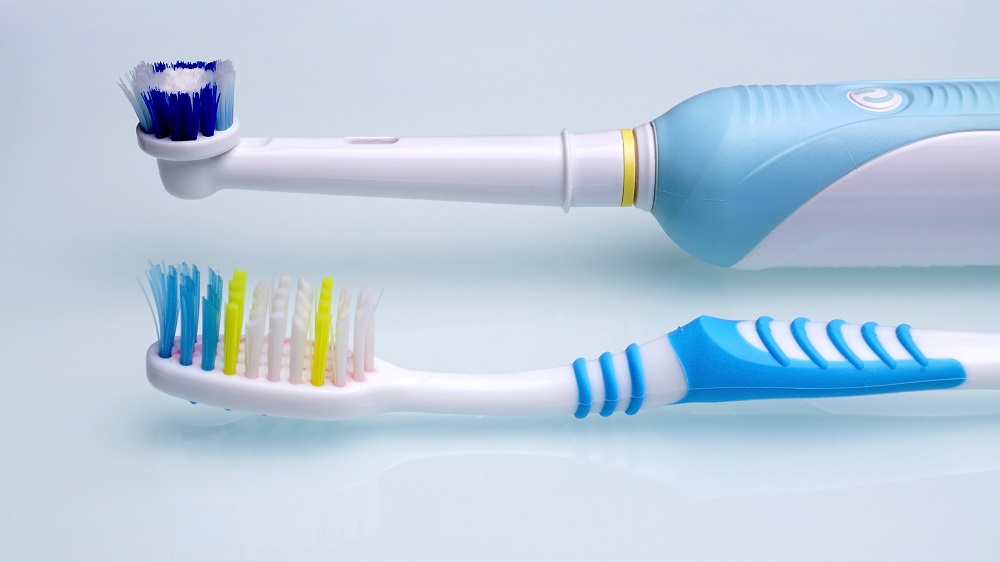 Replace your toothbrush heads every 3-4 months or immediately after falling sick
Use interdental brush in cases of recession
Replace your toothbrush heads every 3-4 months or immediately after falling sick
Use interdental brush in cases of recession
- Hormonal spikes result in extra blood gushing through the body including the oral cavity. The mouth becomes extra sensitive and reactive to existing irritants like food deposits or bacteria due to exaggerated immune function.
- Alteration in oral microbiome favouring bacterial growth
- Impairs body’s innate ability to repair and maintain gum tissues
 ORAL CONTRACEPTIVE PILLS :- Most birth control pills contain a low dosage of synthetic progesterone and estrogen, which do not alter gum sensitivity. However, you may experience excruciating pain after the tooth extraction procedure owing to a dry socket which occurs due to loss of blood clot. Researchers have also found a connection between ingestion of birth control pills and temporomandibular joint (TMJ) disorders.
PREGNANCY :- Pregnancy gingivitis is a common phenomenon impacting 60-to-75% of pregnant women. Gum soreness usually begin in the second month and reaches its peak in the third trimester. Few women present with a nodular growth of gingiva called “Pregnancy Tumor” which usually resolves after the delivery.
There is also a corelation between pregnancy gingivitis and low birth-weight babies and premature deliveries. It is highly recommended to visit a dentist if you are planning a baby to rule out any dental emergency during the gestation period. The dentist also performs a thorough teeth cleaning and polishing session as chances of gingivitis reduces in women with low plaque index. If you missed your dental visit before conceiving, the second trimester is the safest period to consult your dental surgeon.
In cases of morning sickness, there is an inherent risk of tooth erosion owing to the acidic environment in the mouth. Rinse your mouth with water after a vomiting episode and wait for at least 30 minutes before brushing your teeth.
MENOPAUSE :- There is gradual decline in production of estrogen and progesterone leading to menopause between the ages of 45 and 55. The most significant oral symptoms include:
ORAL CONTRACEPTIVE PILLS :- Most birth control pills contain a low dosage of synthetic progesterone and estrogen, which do not alter gum sensitivity. However, you may experience excruciating pain after the tooth extraction procedure owing to a dry socket which occurs due to loss of blood clot. Researchers have also found a connection between ingestion of birth control pills and temporomandibular joint (TMJ) disorders.
PREGNANCY :- Pregnancy gingivitis is a common phenomenon impacting 60-to-75% of pregnant women. Gum soreness usually begin in the second month and reaches its peak in the third trimester. Few women present with a nodular growth of gingiva called “Pregnancy Tumor” which usually resolves after the delivery.
There is also a corelation between pregnancy gingivitis and low birth-weight babies and premature deliveries. It is highly recommended to visit a dentist if you are planning a baby to rule out any dental emergency during the gestation period. The dentist also performs a thorough teeth cleaning and polishing session as chances of gingivitis reduces in women with low plaque index. If you missed your dental visit before conceiving, the second trimester is the safest period to consult your dental surgeon.
In cases of morning sickness, there is an inherent risk of tooth erosion owing to the acidic environment in the mouth. Rinse your mouth with water after a vomiting episode and wait for at least 30 minutes before brushing your teeth.
MENOPAUSE :- There is gradual decline in production of estrogen and progesterone leading to menopause between the ages of 45 and 55. The most significant oral symptoms include:
- Altered taste sensation especially to salty, spicy or sour food,
- Increased teeth sensitivity
- Burning sensation in the tongue, palate
- Gum Recession
- Decreased bone density resulting in spacing between the teeth, teeth mobility and eventual tooth loss
- Dry mouth which in turn leads to tooth decay, bad breath, candidiasis, plaque deposits along the gum line, owing to lack of flushing action of saliva
- Pale, dry, shiny gums that bleed easily
 Replace your toothbrush heads every 3-4 months or immediately after falling sick
Use interdental brush in cases of recession
Replace your toothbrush heads every 3-4 months or immediately after falling sick
Use interdental brush in cases of recession
- Flossing- Use floss picks and water flosser
- Antibacterial mouth wash
- Annual professional teeth cleaning and polishing sessions
- Warm saline rinses
- Drink plenty of water
- Take Calcium, Vitamin D and B-complex supplements
- Avoid excessive caffeine, tobacco or alcohol intake
- Use sugar free chewing gum after meals to neutralise the oral environment
- Avoid mouth breathing and use humidifier in your bedrooms while sleeping



